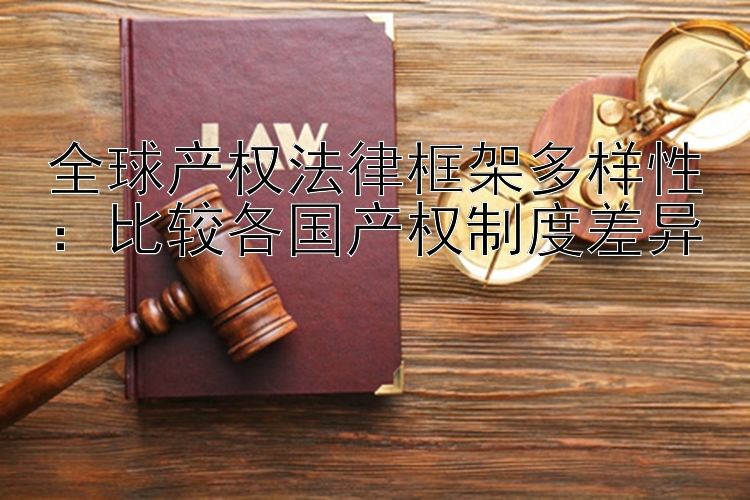全球产权法律框架的多样性是一个复杂而广泛的主题,它涉及到不同国家和地区的法律体系、经济结构和社会文化背景等多个方面。每个国家的产权制度都有其独特的特点和历史发展轨迹,这些因素共同塑造了当前各国的产权法律框架。以下是对全球几个主要地区和国家产权制度的简要比较分析:
1. Common Law Jurisdictions (如英国和美国)
- Property Rights: In common law jurisdictions, property rights are generally well-established and protected by the legal system. The concept of "possession is nine tenths of the law" reflects the strong emphasis on possession as a key element in establishing ownership.
- Case Law: Common law systems rely heavily on precedent set by previous court decisions to interpret and apply laws related to property. This allows for a more flexible approach that can adapt to changing social and economic conditions.
- Limited Government Intervention: There is typically less government intervention in private property transactions compared to civil law countries. However, governments may still regulate certain types of properties or impose restrictions for public interest reasons.
2. Civil Law Countries (如法国和德国)
- Codified Laws: Civil law systems feature comprehensive codes that provide detailed rules governing various aspects of property ownership. These codes aim to provide clarity and predictability within the legal framework.
- Government Regulation: Civil law countries often have stronger governmental involvement in regulating real estate markets. For example, zoning laws and building permits play a significant role in urban planning and development.
- Easements and Servitudes: Civil law systems frequently recognize easements and servitudes, which allow for shared use or burdens placed upon land without necessarily transferring full title.
3. Socialist/Mixed Economies (如中国和越南)
- State Ownership: Socialist economies emphasize state control over natural resources and strategic industries. Private individuals and corporations may hold some forms of property but with limitations imposed by the state.
- Reform Trends: Many socialist countries have adopted elements of market economics, leading to a hybrid system where private property rights coexist alongside extensive state regulation and ownership.
- Foreign Investment: Regulations regarding foreign investment can vary widely from country to country within this category, reflecting both national security concerns and incentives to attract capital into specific sectors.
4. Islamic Legal Systems (如沙特阿拉伯和伊朗)
- Sharia Law: Islamic law recognizes different categories of property, including personal, joint, and communal property. Sharia principles influence how contracts involving property are interpreted and enforced.
- Usufruct: Usufruct refers to the right to enjoy the fruits of something without altering its substance; it plays an important role in Islamic inheritance laws and agricultural practices.
- Zakat: The obligation to pay zakat (a form of religious tax) on certain types of wealth, including property, is another distinctive aspect of Islamic legal systems.
5. Latin American Nations (如巴西和墨西哥)
- Agrarian Reform: Many Latin American countries have undertaken agrarian reforms aimed at redistributing land among the population, sometimes leading to complex property disputes and regulations.
- Informal Settlements: Urbanization has led to widespread informal settlements in many parts of Latin America, posing challenges for formalizing property titles and ensuring adequate housing rights.
- Foreign Investment Protection: As resource-rich regions, Latin American nations often negotiate bilateral investment treaties to protect foreign investments while balancing local interests.
It's worth noting that these comparisons represent broad generalizations and each jurisdiction's actual legal landscape is far more nuanced. Additionally, international treaties such as the International Covenant on Economic, Social, and Cultural Rights and regional agreements like the European Union's Acquis Communautaire can impact the way individual countries implement their own domestic property regimes.